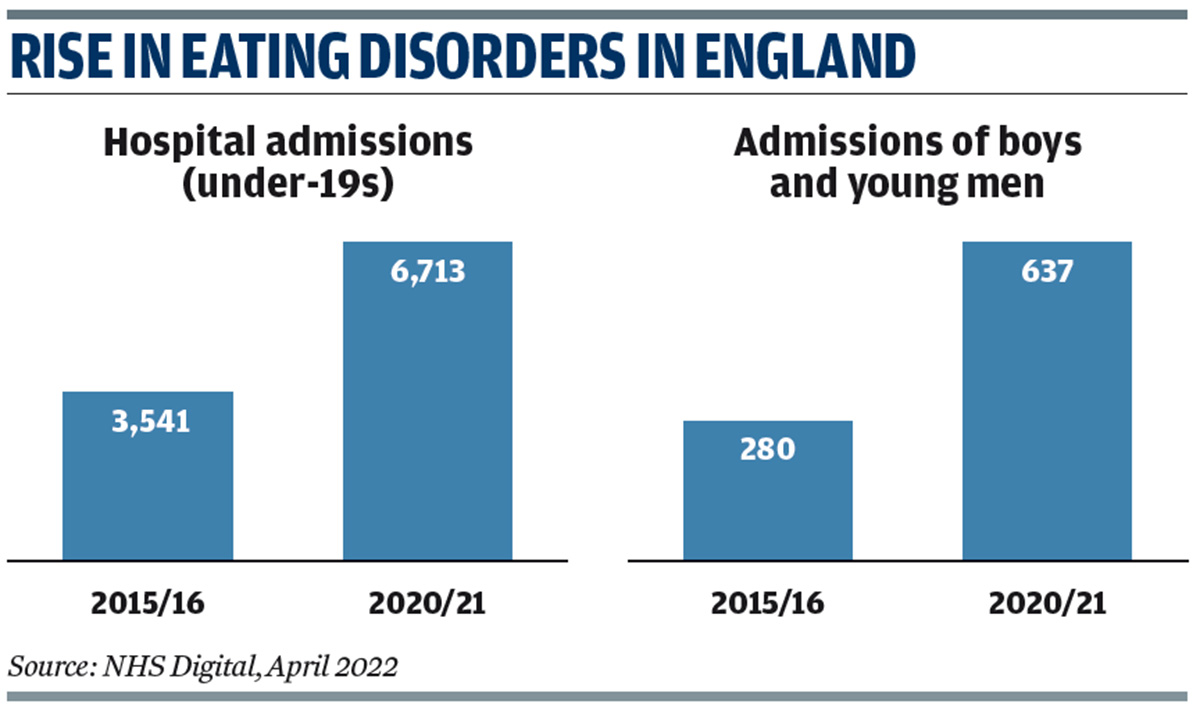
Latest analysis by the royal college has found there was a 90 per cent rise in the number of children and young people aged 18 and under admitted to hospital with an eating disorder between 2015/16 and 2020/21 (see graphics). Hospital admissions among boys and young men saw the largest increase of 128 per cent.

A lack of awareness of eating disorders among healthcare professionals in primary care and emergency departments is a factor in problems in young people failing to be identified sooner, according to the royal college. To address this it has produced new guidance for frontline staff “so that people with eating disorders needing urgent care can be identified and treated earlier”.
Register Now to Continue Reading
Thank you for visiting Children & Young People Now and making use of our archive of more than 60,000 expert features, topics hubs, case studies and policy updates. Why not register today and enjoy the following great benefits:
What's Included
-
Free access to 4 subscriber-only articles per month
-
Email newsletter providing advice and guidance across the sector
Already have an account? Sign in here

